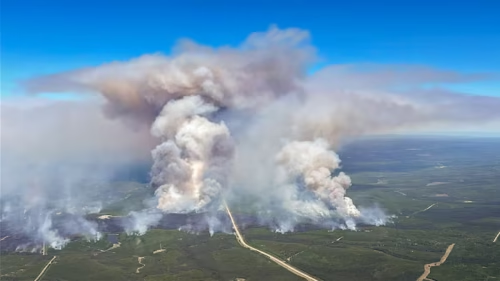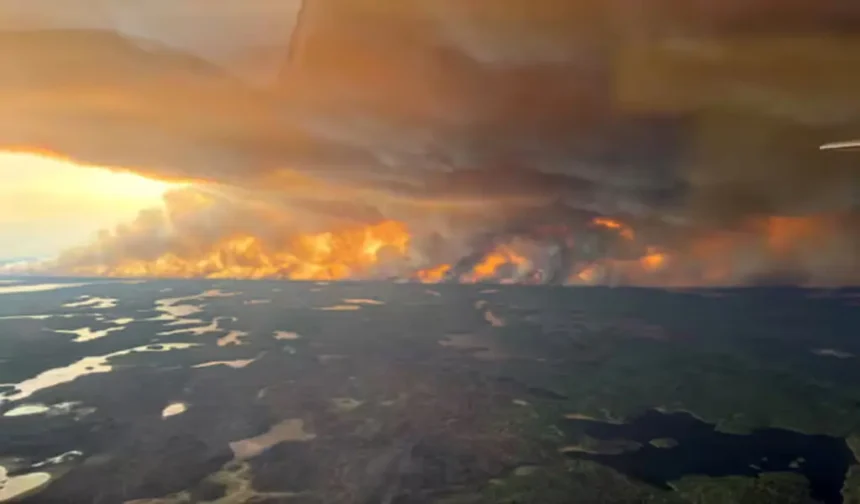The risk of lung cancer patients dying from their disease may be elevated by exposure to wildfire smoke, particularly among non-smokers. However, the effect may be mitigated by certain cancer treatments, according to a large California study presented at a major medical conference on Saturday.
Between 2017 and 2020, researchers tracked over 18,000 individuals diagnosed with non-small cell lung cancer, the most common form of the disease.
They found that those living in areas with the highest levels of wildfire-related air pollution in the year following diagnosis faced a higher risk of dying from the illness.
Can Cancer Treatments Offset the Impact of Wildfire Air Pollution?
Researchers reported at the American Society of Clinical Oncology meeting in Chicago that patients exposed to higher levels of fine particulate matter (PM2.5)—tiny particles with a diameter of 2.5 microns or less that can deeply penetrate the lungs—had a 20% increased risk of dying from lung cancer.
The study found that individuals with advanced stage 4 cancer who had never smoked were particularly vulnerable. Among this group, exposure to high levels of wildfire smoke raised the risk of cancer-related death by 55%.

Using advanced modeling, the researchers estimated daily air quality at patients’ home addresses, pulling data from satellites, weather models, smoke forecasts, and air quality monitors.
Interestingly, patients with stage 4 lung cancer who had a history of smoking and were treated with immunotherapy drugs did not show a significant change in survival when exposed to wildfire smoke.
“This unexpected trend suggests that certain treatments may interact with smoke-related changes in the body,” the researchers noted, adding that more investigation is needed.
Wildfire smoke is more toxic than typical air pollution. It often contains traces of chemicals, metals, plastics, and other synthetic substances, along with particles of sediment and biological material.
Dr. Surbhi Singhal, the study’s lead author from the UC Davis Comprehensive Cancer Center in Sacramento, California, said, “As wildfires become more frequent and intense in California and other parts of the U.S., we need targeted health strategies to protect cancer patients and others with serious health problems.”















